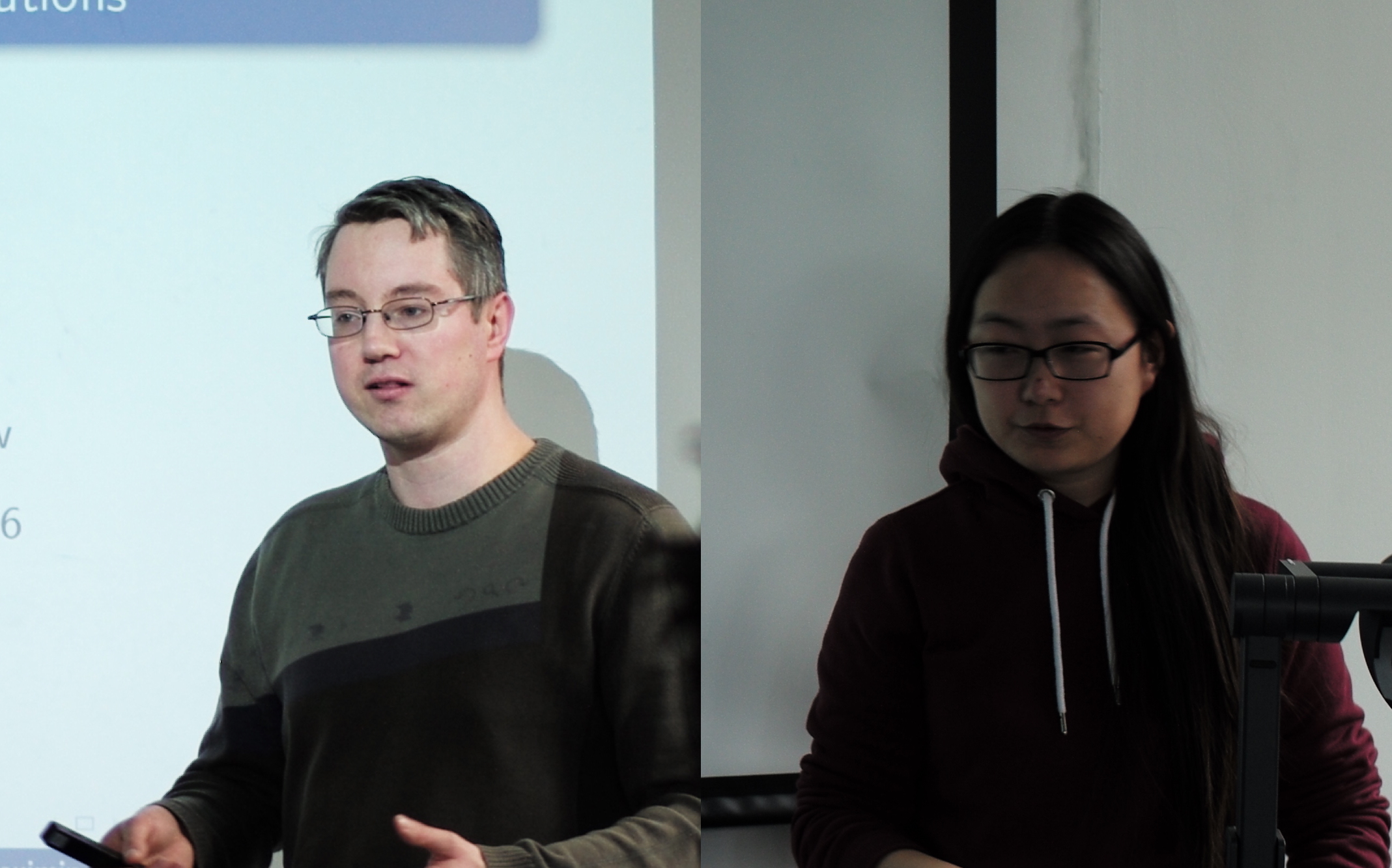Seminar 3: Bram Driesen, Ph.D., and Li Nie
8th of April, 2016

Summary
Our two speakers Bram Driesen, Ph.D., and Li Nie shed light on peculiarities in economic interactions.
Bram's Talk: Truncated Leximin Solutions
“Whenever a conflict between agents is not settled or mediated by some arbitrator, it is quite common for the outcome of that interaction to be Pareto dominated. As a consequence, whenever a Nash bargaining problem represents such a non-arbitrated dispute, it may not be entirely appropriate to impose Pareto Optimality (PO) on the proposed solution. For any solution whose characterization does involve PO, it thus becomes a relevant question how far we get without explicitly assuming any notions of efficiency; what violations (of efficiency) become admissible when such violations are not assumed away? Are there any other, more palatable axioms that rule out ineffiencies? In this talk, I aim to address these questions for Thomson and Lensberg's axiomatization of the leximin bargaining solution.”
Contact Bram
- E-Mail: bram.driesen@gla.ac.uk
- Homepage: bramdriesen.eu
- Uni-Webspace: Click here
Li's Talk: Monopoly Pricing a Pure Social Good on Networks
“Network structure (geography and social links) influences the consumers’ consumption behaviour and monopoly’s pricing behaviour. My research focuses on a pure social good (If none of a user’s friend consumes the good, the user get non positive utility from consuming it ). The research is motivated by the users’ behaviour on social network website, such as Facebook. The paper is trying to find the equilibrium in which all the connected users choose their time optimally on Facebook given the users’ friends choosing their time optimally on Facebook and the monopoly(Facebook) posting ads to them(causing disutility). Monopoly maximizes her profit by choosing the density of posting ads and keeping the users stay in the website. In the future the research will investigate the model with targeted subjected audience since Facebook can find the subjected audience on line since it has the knowledge of its users’ profiles.”
Contact Li
- E-Mail: l.nie.1@research.gla.ac.uk
- Uni-Webspace: Click here